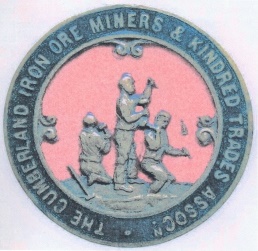Related Research Articles
In British politics, an affiliated trade union is one that is linked to the Labour Party. The party was created by the trade unions and socialist societies in 1900 as the Labour Representation Committee and the unions have retained close institutional links with it.

The Iron and Steel Trades Confederation (ISTC) was a British trade union for metal-workers and allied groups, being the largest union in these fields. It was formed on 1 January 1917 as a merger of existing steel-workers' unions and it is now part of Community.
The National Glass Bottle Makers' Society was a trade union representing workers involved in the manufacture of glass bottles in the United Kingdom.

The National Union of Vehicle Builders (NUVB) was a trade union in the United Kingdom. The NUVB represented a mixture of skilled and unskilled workers in the automotive industry.
The Iron, Steel and Wood Barge Builders and Helpers Association was a trade union in the United Kingdom. It was founded in 1872 as the Barge Builders Trade Union, also known as the River Thames Barge Builders Trade Union, and adopted this title in 1940. Its initial membership was about 90 and rose to 400 by 1890. The General Secretary from 1879 to 1908 was William Charles Steadman, who was also councillor for Stepney on the London Chamber of Commerce and MP for Stepney. By 1945 the union's membership had increased to 863, before falling again to 526 in 1967. The Association merged with the Transport and General Workers' Union in 1973.
The Grimsby Steam and Diesel Fishing Vessels Engineers' and Firemen's Union was a trade union in the United Kingdom.
The National Union of Gold, Silver and Allied Trades (NUGSAT) was a trade union in Britain and Ireland. It represented workers in precious metals, jewellers, diamond polishers, electroplaters, watch and clock repairers and dental technicians.
The Wire Workers' Union was a trade union in England which existed between 1840 and 1991. It represented workers involved in the manufacture of wire.
Joseph O'Hagan, often known as Joe O'Hagan, was a British trade union leader.
The Associated Metalworkers' Union was a trade union in the United Kingdom which existed between 1863 and 1999. It represented semi-skilled foundry workers known as iron dressers or fettlers, who were responsible for removing moulding sand and excess metal from castings.
The Cleveland Miners' and Quarrymen's Association was a trade union representing ironstone miners in the Cleveland area of England.
The British Steel Smelters' Association (BSSA) was a trade union representing steel smelters and workers in related trades in Britain.
The Tin and Sheet Millmen's Association was a trade union representing millmen in the metalworking industry in the United Kingdom.
The Amalgamated Society of Steel and Iron Workers of Great Britain was a trade union representing workers in iron- and steelworks, principally in Scotland.
The National Union of Textile Workers was a trade union representing workers in the textile industry in England, principally in Yorkshire.
The Yorkshire Society of Textile Craftsmen (YSTC) was a trade union representing workers in a variety of textile work in Yorkshire.
Ambrose Callighan was a British trade unionist.
Jack Owen was a British trade unionist.
Thomas McKenna was a British trade unionist.

The Cumberland Iron Ore Miners' and Kindred Trades' Association was a trade union, principally representing iron ore miners in the Cumberland area of North West England.
References
- 1 2 Eaton, Jack; Gill, Colin (1981). The Trade Union Directory. London: Pluto Press. pp. 135–137. ISBN 0861043502.
- 1 2 3 Marsh, Arthur; Ryan, Victoria (1984). Historical Directory of Trade Unions: Engineering, shipbuilding and minor metal trades; coal mining and iron and steel; agriculture, fishing and chemicals. 2. Gower. p. 279. Retrieved 5 April 2013.
- 1 2 Marsh, Arthur Ivor; Ryan, Victoria (2009). Smethurst, John B. (ed.). Historical Directory of Trade Unions. 6. Ashgate Publishing. p. 279. ISBN 9780754693239 . Retrieved 5 April 2013.
- ↑ Marsh, Arthur Ivor; Ryan, Victoria (2009). Smethurst, John B. (ed.). Historical Directory of Trade Unions. 6. Ashgate Publishing. p. 280. ISBN 9780754693239 . Retrieved 5 April 2013.
- ↑ Parker, James (2017). Trade unions and the political culture of the Labour Party, 1931-1940 (PDF). Exeter: University of Exeter. p. 125.